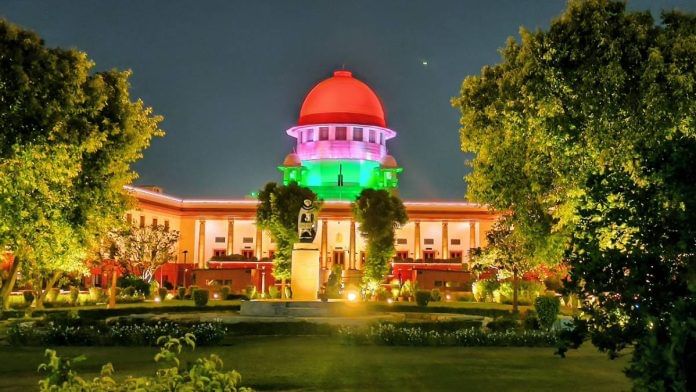Thank you dear subscribers, we are overwhelmed with your response.
Your Turn is a unique section from ThePrint featuring points of view from its subscribers. If you are a subscriber, have a point of view, please send it to us. If not, do subscribe here: https://theprint.in/subscribe/
Politics has never been free of accusations. From the earliest assemblies in Athens to today’s parliaments, leaders and opponents have traded charges to weaken one another. But in the 21st century, with the rise of 24/7 news cycles and social platforms, baseless allegations have become not just routine but central to the functioning of politics. This is not unique to one country; democracies across the world—whether mature like the United States and the UK, or emerging like Brazil, Kenya, and the Philippines—are witnessing a surge in weaponised allegations that lack proof but succeed in shaping political outcomes.
India, the world’s largest democracy, is both a victim and a mirror of this global phenomenon. Its diversity, size, and vibrancy make allegations a daily staple of political life. Election seasons, parliamentary sessions, and even policy announcements often get drowned in the din of charges and counter-charges. While this reflects the competitive energy of Indian democracy, it also exposes the dangers of an allegation-driven political culture.
The mechanics of baseless allegations
A baseless allegation may be dismissed by courts, disproved by fact-checkers, or denied by institutions. Yet, it often achieves its purpose long before the truth emerges. In an era where perception dominates, allegations stick faster than facts. A scandal—whether about corruption, abuse of power, or bias—captures headlines and social media feeds instantly. The subsequent clarification, if it comes at all, is remembered by few.
For politicians, the incentive is obvious. Allegations are low-cost, high-impact tools. They divert attention from governance failures, weaken opponents by tarnishing reputations, and rally supporters around a sense of grievance. The more sensational the claim, the greater its spread, amplified by television debates and social media algorithms that reward outrage.
Delegitimising opponents and institutions
The most direct consequence is the delegitimisation of opponents. Leaders, parties, and movements are branded corrupt, communal, or anti-national without substantiation. In India, allegations of “scams” or “dynasty politics” on one side, and “majoritarian bias” or “authoritarianism” on the other, have become everyday weapons. Even if proven false later, the shadow remains.
Equally dangerous are allegations against institutions. The Election Commission, judiciary, investigative agencies, and regulators are often accused of bias or conspiracy. While scrutiny of institutions is healthy in a democracy, baseless charges corrode their credibility. Once citizens lose faith in electoral integrity or judicial independence, the foundations of democracy weaken. India’s institutions have shown resilience, but repeated, unproven charges chip away at their legitimacy.
The cycle of polarisation
When baseless allegations dominate political culture, societies enter a cycle of polarisation. Truth becomes secondary to loyalty. Supporters dismiss facts as propaganda, while opponents see every denial as cover-up. This deepens mistrust not only between political actors but also among citizens themselves.
India is not alone in this; the United States has grappled with election denialism, Brazil with corruption narratives, and African democracies with ethnic-driven allegations. But in India, polarisation has a unique edge: it is layered not only by party lines but also by caste, community, language, and region. Allegations, therefore, act as accelerants in an already combustible social fabric.
Impact on governance
The governance cost is severe. Political leaders spend disproportionate energy defending themselves against charges, real or fabricated. Parliamentary debates turn into arenas of accusation rather than policy discussion. Media channels allocate more airtime to controversies than to developmental issues such as jobs, infrastructure, or education. Bureaucrats hesitate to take decisions, fearing they might later be branded as part of a “scam.”
For India, a nation striving to achieve economic self-reliance and global leadership, such distractions slow momentum. Instead of long-term planning, short-term political firefighting dominates. The cynicism that “all politicians are corrupt” further alienates citizens, reducing constructive participation in democracy.
Baseless allegations thrive because social platforms in the amplify unverified claims faster than fact-checkers or courts can respond. Hyper-partisan prime-time debates thrive on drama rather than data. Most times emotional claims resonate more than complex explanations and leave lasting impressions n the psyche. Algorithms in virtual echo chambers ensure people mostly see content reinforcing their beliefs in the absurd. Defamation laws exist but are slow, politicised, or ineffective in curbing slander in a weak legal system and seldom help deterrence.
The way forward
Democracies survive when citizens value truth and evidence over sensationalism. Political leaders and parties too must introspect. While allegations may yield short-term advantage, they corrode the democratic system that sustains them. Civil society and independent media must shoulder responsibility by promoting fact-based discourse. India’s democracy has thrived because of its resilience, but resilience should not be taken for granted. Democracy thrives on contestation, but it cannot thrive on baseless contestation. Allegations without evidence are corrosive forces that weaken institutions, deepen divisions, and obstruct governance. Ultimately, the choice lies with citizens: whether to be passive consumers of sensationalism, or active participants in building a healthier democratic culture.
Col KL Viswanathan
(The author is an Indian Army veteran and a contemporary affairs commentator. The views are personal. He can be reached at kl.viswanathan@gmail.com )


